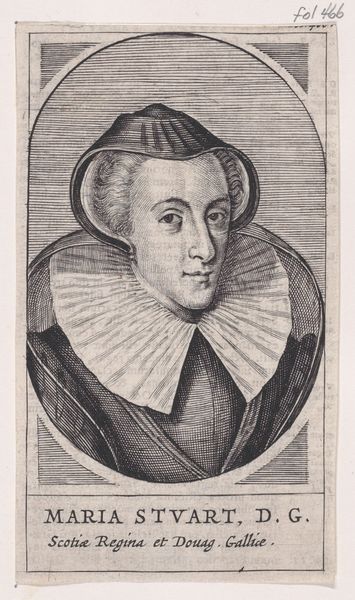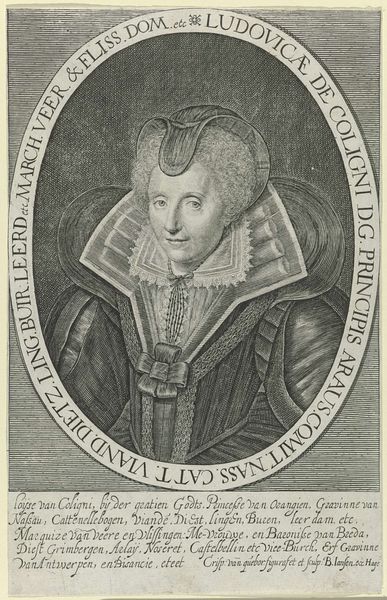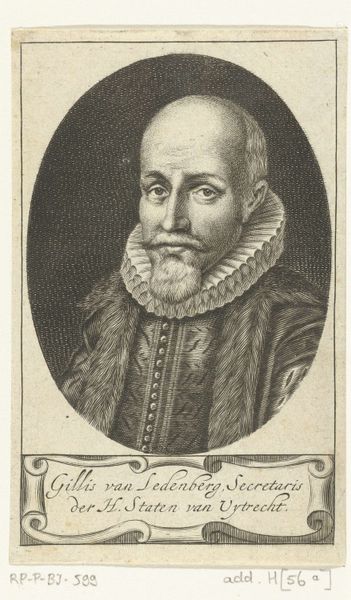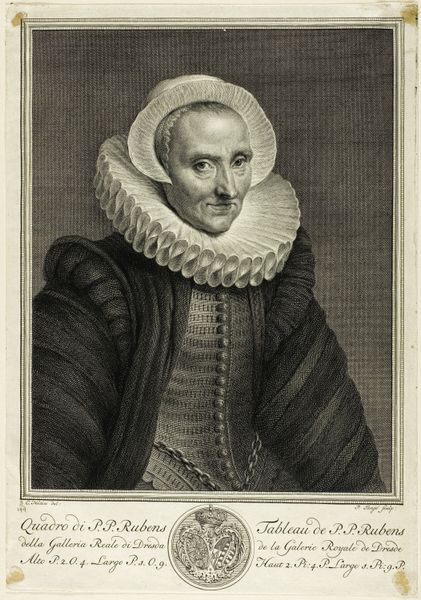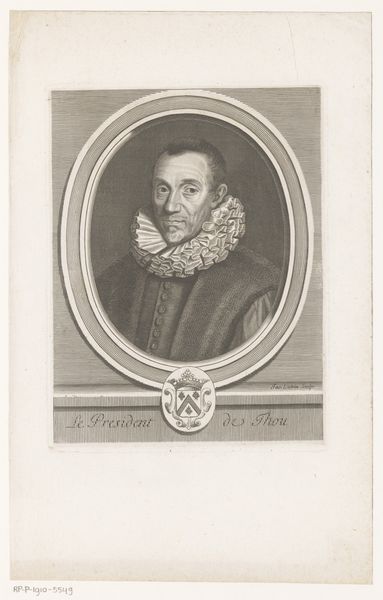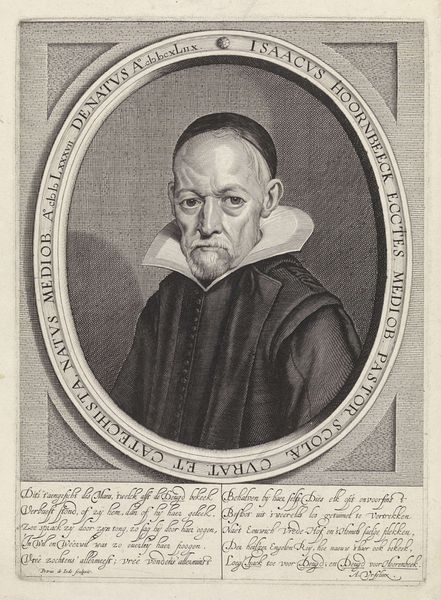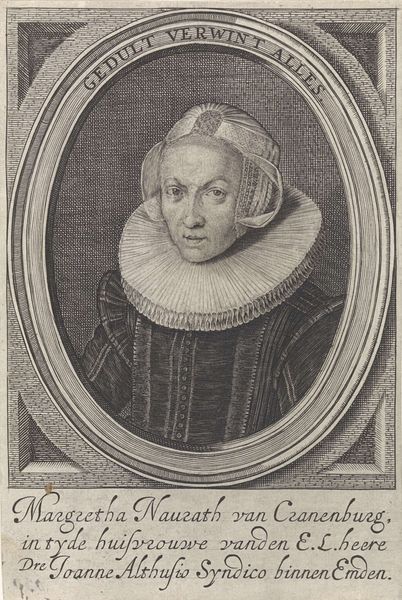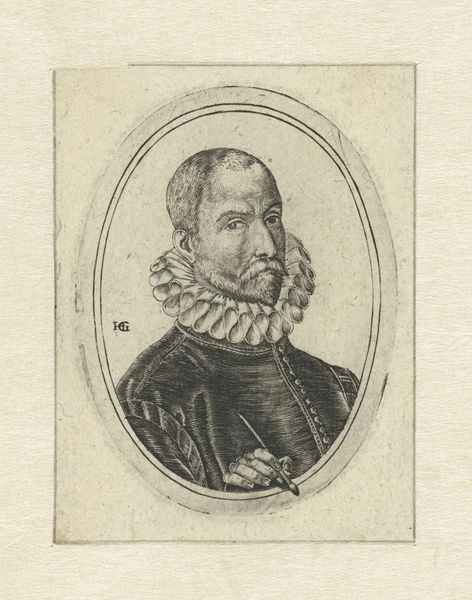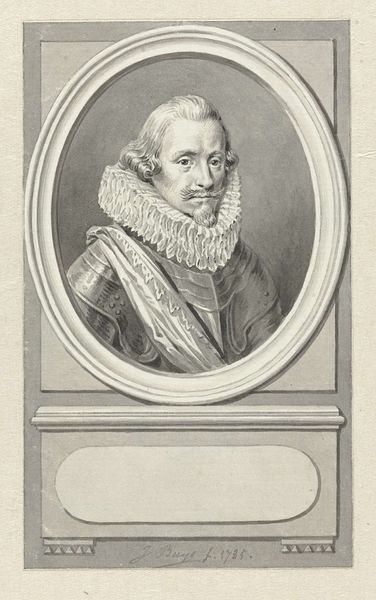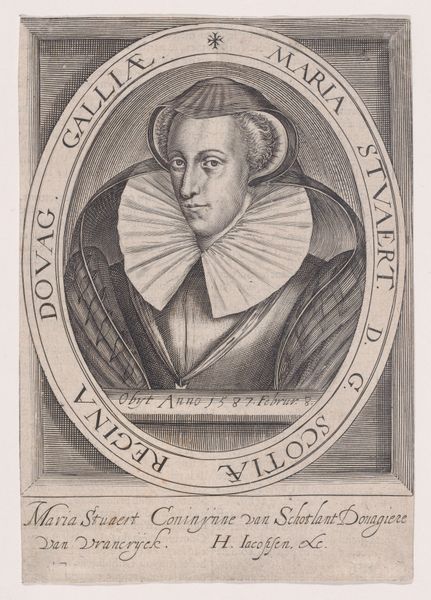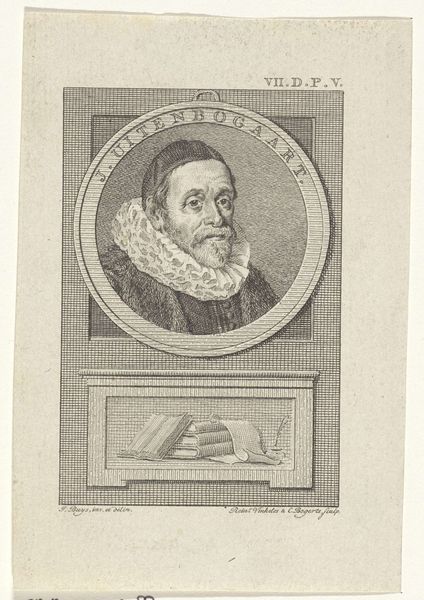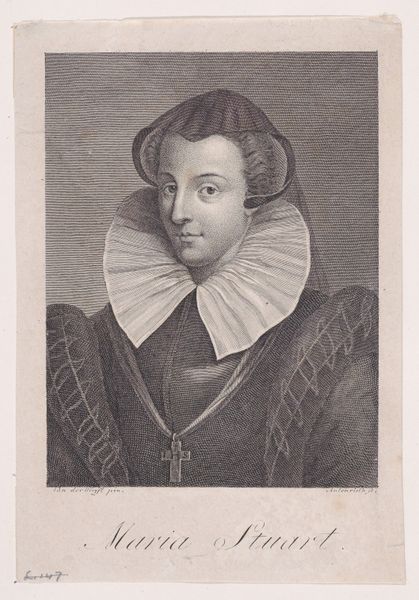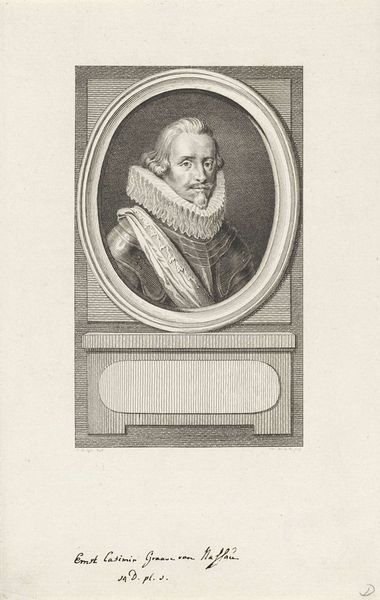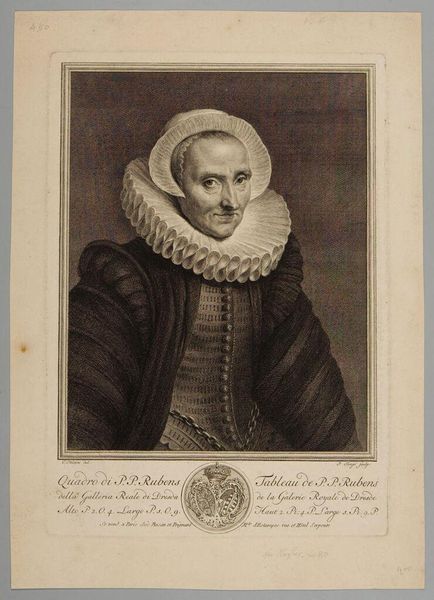
engraving
#
portrait
#
baroque
#
old engraving style
#
caricature
#
portrait drawing
#
northern-renaissance
#
engraving
Dimensions: height 183 mm, width 127 mm
Copyright: Rijks Museum: Open Domain
Editor: We’re looking at "Portrait of Anne Dacres, Countess of Arundel," an engraving by Wenceslaus Hollar, made sometime between 1636 and 1644. It's a striking image; the detail achieved with the engraving technique is fascinating, but I'm unsure what to make of the overall effect. How do you interpret this work? Curator: Let's consider the formal elements at play. Note the use of line, creating tonal variation and defining the Countess's features and costume. The meticulous rendering of the ruff and headdress draws the eye. Observe how the artist creates form and depth solely through line, cross-hatching, and stippling. The formal qualities serve the practical purpose of rendering a convincing image and perhaps something more. What purpose, would you suggest? Editor: I suppose, capturing her likeness? But there's a somewhat unflattering quality; it’s hard to tell if it is accurate or perhaps exaggerated. It certainly contrasts with the opulence typically associated with Baroque portraiture. Curator: Precisely. Does this "warts-and-all" approach alter your understanding? Perhaps moving beyond a simple record? Editor: Maybe. It focuses less on idealization and more on the physical attributes of the subject herself. But what about its historical implications? Can you explore those a little more? Curator: Such details may inform discussions of truth and realism as aesthetic considerations in Baroque art. Editor: So, focusing on the structure and execution reveals an approach to portraiture that may have deliberately deviated from conventional flattery of the sitter. It's been insightful to analyze the formal decisions in this work. Curator: Indeed. By focusing on the technique, composition, and structure, we can consider Anne Dacres's portrayal outside common portrayals from this period.
Comments
No comments
Be the first to comment and join the conversation on the ultimate creative platform.
